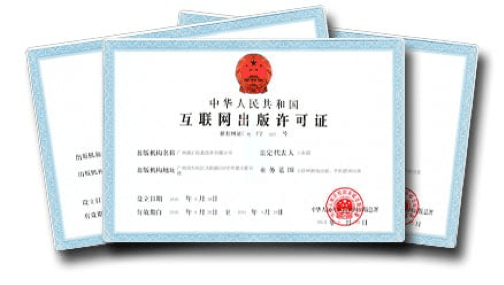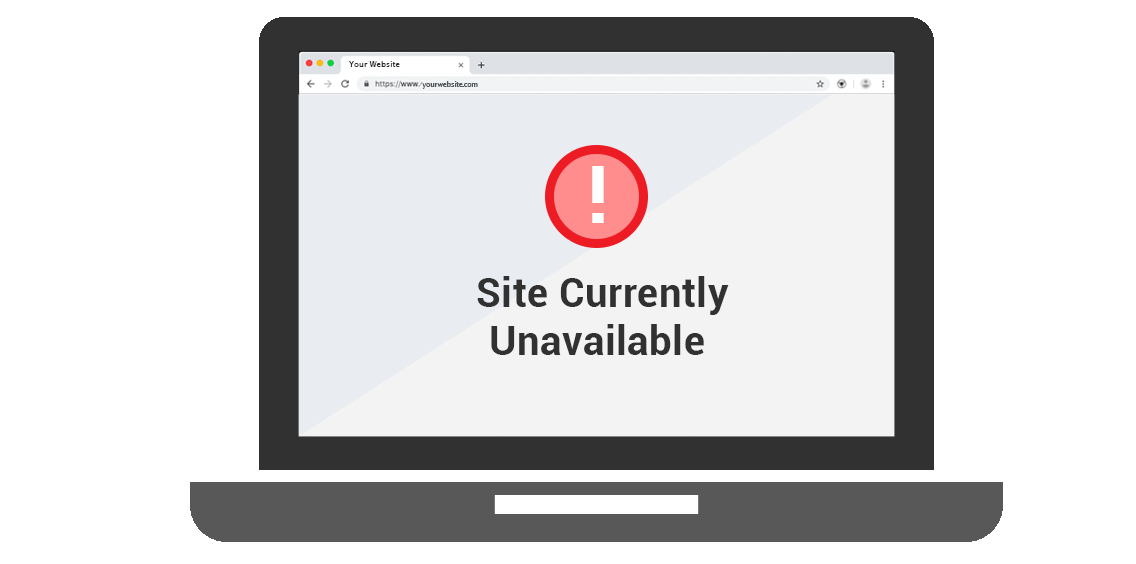If you're looking to expand your digital business footprint in China, there are two main options to choose from. You can either host a new website within China, that has an ICP license, or you can do offshore hosting for your China website, in a nearby country, and use direct peering to enable access from within China.
Between these two options, hosting within China provides better website performance. However, there may be more administrative costs to be considered since you'll need an ICP license. Obtaining that license is in itself a whole different process from website optimization. Your business will need to show that it legally exists in China.
This is why the second option is taken by some foreign businesses. However, it may be more expensive to keep over the long term. It does have its merits in the short term, especially if you're still in the process of fully scaling your business in China. Offshore hosting is dependent on peering with Tier 1 ISPs from China, so you need to familiarize yourself with how that specific architecture works.
Regardless of the option, you'd still need to consider website maintenance as part of your business investment. It's strategic to include CDN within your website's framework to help prevent latency issues. You need SEO that's specific to China's search engines and digital ecosystem. And finally, adding third-party plug-ins compatible with China's unique ecosystem makes for a more worthwhile user experience for your website.
So which option works best for your needs? Here's a deep dive into each of the two, plus other factors to consider before finally investing in a China-ready website.
Hosting your website within China
When hosting your website in China, it helps to think of the entire process in three different stages: accreditation, creation, and maintenance.
In the accreditation stage, you must secure the necessary permits to operate an online business or have a web presence within China. The creation stage is pretty much the same as any standard website creation, except that extra steps must be made if you plan to host your site on a .cn domain. Maintenance would also be pretty much the same as standard procedures, although China CDNs are highlighted as important as well as SEO-specific to China's digital ecosystem.
Getting an ICP License
An ICP (Internet Content Provider) license gives you permission to go through the Great Firewall of China since it's issued by the MIIT (Ministry of Industry and Information Technology). There are also two different kinds of ICP licenses to choose from: commercial and non-commercial web services. In a nutshell, applying for an ICP license is almost similar to applying for a business permit, so you may be required to submit business documents you might not otherwise need when creating your original website outside China.
Your ICP license number must also be displayed at the footer of your website, to verify that your China website is legally operating within the country. Over time, an ICP license would also need to be renewed and you need to take careful steps to make sure you keep it within the time frame you're licensed.
.cn vs .com
The CNNIC (China Internet Network Information Center) has recently loosened restrictions on getting a .cn domain, making it more accessible to foreign parties. These days, almost anyone can buy a .cn name, even without a registered business in China. However, buying one does not necessarily mean you can immediately use it.
If you finally decide to launch your .cn website, you'll be required to submit documentation proving your identity. You must go through a real-name verification process that requires you to submit any of the following, as it applies:
- A valid Chinese resident identity card, temporary residence permit, business license, or organization code certificate
- A valid resident ID card, passport, or business license for those residing in Hong Kong, Taiwan, or Macau
- A valid passport for citizens of other countries
While other TLDs (top-level domains) are also acceptable, with .com still a popular choice, using a .cn domain gives your website more local credibility and also protects you from stringent censorship policies, and may help your chances of obtaining an ICP license.
Chinese server and CDN (Content Delivery Network)
There are several server providers for onshore China website hosting. Some of the popular options with a compelling English interface are Aliyun (or Alibaba Cloud), Tencent Cloud, and ChinaNetCenter. Other options may require you to have Chinese reading abilities to enable operating their server platforms. We can certainly help sort things out if you need help. Check out our China Solutions or Contact us.

These providers are able to provide hosting and CDN services for China-based websites. This is another requirement that you must explicitly declare when applying for an ICP license.
To be able to compete in China's vast digital ecosystem, you need a Chinese CDN on top of your hosting services. E-commerce sites and content-heavy sites benefit from engaging in CDN services by preventing latency issues and unwanted packet loss that causes playback interruptions, especially on videos.
Unlike traditional web host servers, CDN focuses on user proximity to deliver content. It uses edge servers that cache data, thus speeding up transfers. The idea mimics that of convenience stores vs. grocery stores. You can think of CDN as a convenience store, easily accessible for anything you might need at the moment whereas traditional web servers are like large-scale grocery stores you need to take a trip to in order to get your weekly supply of items.
Some businesses hesitate to sign up for a CDN due to additional costs. Depending on your business purpose, CDN may or may not be essential at the moment. However, China websites must have China-based CDN so it does help to consider it early on.
In the long run, CDNs can actually save up on costs because it allows you to distribute the bandwidth loading of your web host provider. In addition to this, having a CDN also gives you the benefit of enabling WAF (Web Application Firewall) to protect your site against various DDoS attacks.
Plugging into China's digital ecosystem
In China, search optimization is not equal to Google, far from it, actually. There are several search engines that operate within China's digital ecosystem and each of them functions as a mini eCommerce site. To become competitive in terms of searchability, you need to redefine your content optimization strategy using the following methods:
Ensure content is translated into Simplified Chinese. Use organic and inorganic SEO to maximize your content's reach. In addition to this, social media plug-ins that you may have used for login purposes may no longer work for a China website. Facebook and Google are actually blocked in China, and in their place is a plethora of social media apps such as Weibo, WeChat, and Baidu, each catering to specific users.
Related reading: How to improve SaaS performance in China

Hosting a Chinese website outside China
ICP licensing is perhaps the biggest hurdle to overcome when hosting a website in China. This is why some small to medium businesses prefer to host a China-targeted website in nearby areas instead of within China.
In this option, you don't have to get a specific ICP license to operate a China website, but you might need to focus your investment on the technical aspects instead. Hosting a China website offshore is ideal in the following situations:
- Doing market research and gathering customer feedback for expansion plans
- China is not your main market, just a part of your business strategy
- You're still in the process of making your content China-compliant
In the long term, offshore hosting for a China website may become impractical due to cost constraints and scaling issues. And even if your China website is hosted offshore, you still need to submit a letter of declaration that clearly states where your website servers are located, so you're not totally off the hook when it comes to providing business information.
Related reading: How to launch a website in China as a foreign operator
So how does this option work? A combination of nearby offshore hosting servers, direct peering with Tier 1 ISPs, and constant website monitoring provide the alternative sans IP licensing.
Hosting servers in nearby areas
If you can't host your website in China, where can you host it and still enable access for users within China? The answer lies in any of these areas: Taiwan, Hong Kong, Japan, and Korea.
The reason? Proximity and localized customer support. Proximity leads to better network speeds for data transfers and, since these locations are near China, you may also benefit from China-specialized customer support who speaks your language. Many of these servers are already hosting China-facing websites, and are so well equipped for your needs. You can pick other areas or countries other than these, but their distance might lead to traffic and speed issues. The logic works pretty much like using VPNs.
Direct peering with Tier 1 ISPs
Direct peering is a process wherein two separate networks voluntarily interconnect to exchange traffic between each network. For example, if your website is hosted in Taiwan, it can be seen by users from China who use an ISP that allows for direct peering with foreign networks. China has identified ISPs that are legally permitted to engage in this type of exchange.
High volume, high-quality traffic is important when it comes to direct peering. Therefore, it's necessary to have a Tier 1 ISP peer network such as China Mobile or China Telecom, to name a few. The peer is legally operating within China, reducing some of the accreditation needs you would otherwise go through when hosting onshore. However, this also makes direct peering quite expensive.
Despite the costs, direct peering is seen as beneficial for its speed because it bypasses the public Internet and directly connects to CDNs and ISPs. Doing so prevents latency issues and results in overall improved network performance.
Constant website monitoring
Since this strategy, in essence, is dependent on a peer connection, you will need to constantly monitor your website performance to watch out for potential issues. You need to watch network uptimes and current bandwidth loading to make sure your web pages are delivered in a timely manner. No broken links, no 404 pages.

Other considerations when hosting a China website
Setting up your website for China's digital space is only one part of the journey. Another aspect, which covers both hosting options, deals with website maintenance. Generally speaking, there are three important aspects you need to maintain to keep your China website's competitive advantage: your ICP license (if your website is hosted in China), search engine optimization, and third-party plug-ins.
Maintaining your ICP license
This is a non-issue if you're hosting your China website offshore, as this will be covered by your direct peer ISP. You just need to make sure your ISP provides the traffic you need. However, if your website is onshore, you need to optimize your site to stay within the regulations of its ICP license. An ICP license is only valid for 5 years.
Due to stringent policies, it's not uncommon for China-permitted websites to get flagged by the authorities for inappropriate content or perceived security issues. Authorities might do some random checking and auditing. It helps to keep your domain secure since this is where your ICP license is usually tied in.
Organic vs. Inorganic SEO
SEO or search engine optimization is about creating content that ranks high in search engine results. Most of the time, the process is considered “organic" because the optimization happens with the written content, making information exchange flow naturally. Keyword placement and density are strategically used to avoid losing overall readability.
However, organic SEO takes time to mature. It takes a while to gather insights into its effectiveness. You also need to consider other user behaviors as seen from bounce rates, and session duration, among others. This is why inorganic SEO, i.e. paid search, has also become popular, also known as SEM or search engine marketing. SEM shows faster visible results at a literal cost.
Inorganic SEO or SEM uses paid strategies to acquire search engine rankings. It uses techniques such as PPC (pay per click) campaigns and paid ads to get people to notice web content that links back to a website or web page. It also uses keyword optimization on content, in combination with digital media buying to help secure content views, and even sales conversion. In China's search engine space, Baidu is the most well-known platform with a PPC program called Baidu Tuiguang.
Third-party plug-ins
Third-party plug-ins provide a better user experience for your website. However, China's third-party plug-ins may be different from what you're used to. This is most common among social media networks. If you have video content hosted on youtube, please note that such content is blocked in China. If you have content feeds from Twitter, Instagram, or Facebook, such content won't be loaded as most foreign social media platforms are banned. Instead, you need to switch to their Chinese equivalents to engage with your audience.
If you're an eCommerce site or offer web services via online payments, you should consider China-specific online payment options. Some popular online payment systems used in China are Alipay, Baidu Wallet, and UnionPay, to name a few.
Which hosting is for you?
Ultimately, the decision of whether to host your China website onshore or offshore will depend on your business and entrepreneurial goals. It also depends on how much financial investment you're willing to make.
What's most important is to understand that the entire process is not just a matter of translating your current website into Simplified Chinese, expecting the same process and tools to be used for your target China market. While you can do the legwork all by yourself, it's practical and more convenient to partner with an accredited agent who already knows what it's like to build a website from the ground up within China.
To learn more about succeeding in China, check out our other articles.
If you want to learn more about testing in China, check out our solutions.
